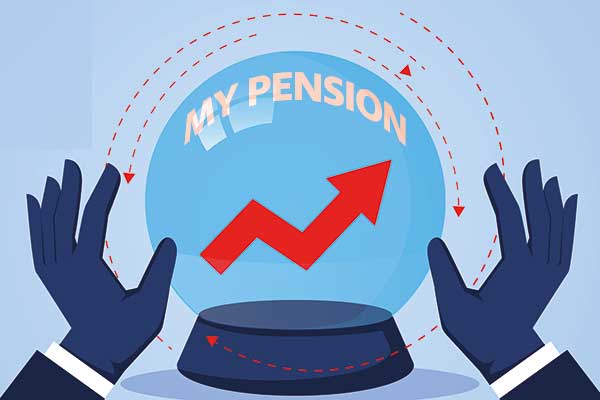Budget 2020: Pensions tax allowance taper to be reformed
Under the new rules, the annual allowance will only begin to taper down for individuals who also have an…
11th March 2020 14:21
by Kyle Caldwell from interactive investor
Under the new rules, the annual allowance will only begin to taper down for individuals who also have an adjusted income above £240,000.

Chancellor Rishi Sunak announced in today’s Budget that punishing tax penalties on pension contributions will be reformed for high earners, including doctors and other senior medical professionals.
Under the complex annual allowance taper system introduced in the 2016/17 tax year, high earners with an ‘adjusted income’ above £150,000 are severely restricted in regard to how much they can save into their pensions, as their £40,000 annual allowance is reduced by £1 for every £2 of income above £150,000, with a maximum reduction of £30,000. This means anyone earning more than £210,000 can pay only £10,000 into a pension each year and claim tax relief.
Under new changes outlined today (11 March) by the government, the threshold income will be raised to £200,000 with effect from April, meaning individuals with income below this level will not be affected at all by the tapered annual allowance.
The government added that under the new rules, the annual allowance will only begin to taper down for individuals who also have an adjusted income above £240,000.
It added, however, that for those on the very highest incomes, the minimum level to which the annual allowance can taper down will reduce from £10,000 to £4,000 from April 2020.
- For the latest investment news, sign up to our newsletter
As Money Observer has previously reported, many doctors had been inadvertently breaching the allowance by working overtime to cover NHS shortfalls, and have incurred the tax charges. Others have been reducing their working hours or even deciding to retire early to try and avoid tax penalties.
The chancellor claims that 98% of consultants and 96% of GPs will no longer be affected by the new rules.
The British Medical Association (BMA) has lobbied the government over the issue. It argues that if doctors are penalised for covering vacancies or helping reduce waiting times, the NHS will reach crisis point.
BMA number-crunching showed that a part-time GP takes home just £338 a year less than a full-time GP, despite working half the hours, primarily because of the pension tax charges incurred by full-time GPs.
Commenting on the reforms, Svenja Keller, head of wealth planning at Killik & Co, questioned why the government did not go a step further by abolishing the pension taper system outright.
She said: “The change to pension rules for doctors – with more clarity and support for their Annual Allowance conundrum – is great news and, at long last, should be a significant boost to frontline healthcare.
“That said, by trying to help NHS doctors the increase in allowance threshold is now applicable to everyone. Why not just abolish it? This would have brought far more simplicity, and the threshold is now so high that it will take many out of the tapering regime regardless.”
The pension lifetime allowance – the maximum pension pot that can be built up before punitive tax penalties kick in on withdrawals – has risen in line with consumer price inflation to £1,073,000 for the next tax year.
- Relief for higher-rate taxpayers as no changes to pension tax relief system
- Junior Isa allowance and Lifetime allowance changes
- Budget 2020: the winners and losers
- Government's plan to try and counter coronavirus shock
- Boost to national living wage to bolster income for low earners
This article was originally published in our sister magazine Money Observer, which ceased publication in August 2020.
These articles are provided for information purposes only. Occasionally, an opinion about whether to buy or sell a specific investment may be provided by third parties. The content is not intended to be a personal recommendation to buy or sell any financial instrument or product, or to adopt any investment strategy as it is not provided based on an assessment of your investing knowledge and experience, your financial situation or your investment objectives. The value of your investments, and the income derived from them, may go down as well as up. You may not get back all the money that you invest. The investments referred to in this article may not be suitable for all investors, and if in doubt, an investor should seek advice from a qualified investment adviser.
Full performance can be found on the company or index summary page on the interactive investor website. Simply click on the company's or index name highlighted in the article.